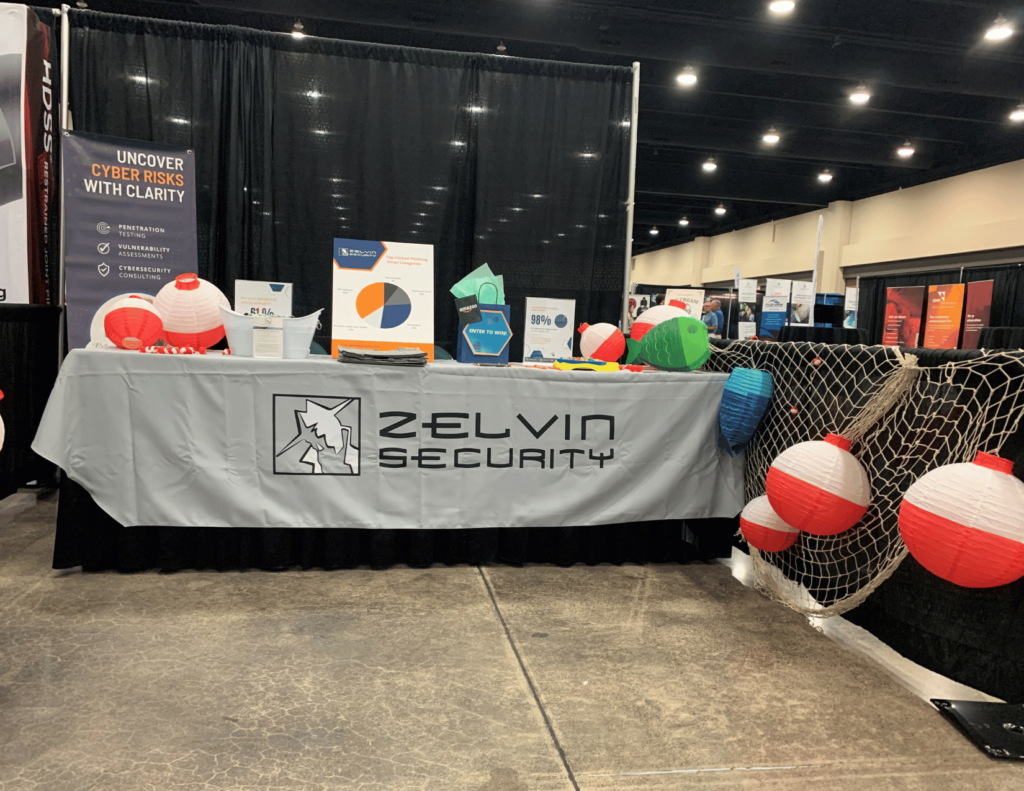
School District Data = Hacker Paychecks
School District Data = Hacker Paychecks
We are dedicated to protecting the education industry, so if you happen to be around, come see us at the Tennessee School Board Association Annual Convention November 16-17th, 2023 or the NYSCATE Annual Conference November 18-21, 2023.
Even if we can’t meet you in person, here is an overview of cybersecurity as it relates to the education industry. Leaders listen up!
Hackers are focusing their attention on educational institutions more than ever before, and the risk is increasing as hackers become more innovative.
This might sound like a waste of time, right? Why would someone hack a school district when there are targets that seem more appealing? Why not go for financial institutions, banking apps, and large companies?
Looking at things from a hacker’s perspective, it will begin to make much more sense.
There are many reasons a hacker would target a school district, the primary being something they love most: DATA.
Target #1 – Employees
Let’s begin with employees since hacking their information seems like the most useful. The vast amount of demographic and administrative data of employees the school or district collects is a treat for hackers. This can be personal information, such as their names, addresses, dates of birth, and photos, as well as more sensitive information like their Social Security numbers, banking information, education credentials, and employment records.
Target #2 – Students
Moving along to the next set of targets, we turn to the students. Schools often retain a lot of information about their students, including complete names, home addresses, birthdays, health records, and the PII associated with the guardians of the students. This information is enough for financial fraud. Student personal information is valuable because criminals can use it to obtain credit. If they succeed in identity theft, they can create several accounts using the student’s credentials, thereby ruining the student’s credit. What makes matters worse is how long it can take for someone to realize it has happened. It is only when they try to build credit or even apply for a college loan at age 18, do they discover that they are a victim.
For instance, hackers released information about students and employees after an attack on a public school in Ohio.
The breach contained information like social security numbers, home addresses, and more basic data like names, dates of birth, and gender. Surprisingly, a few months later, a father noticed someone attempted to apply for a credit card and a vehicle loan in the name of his elementary school-aged child. Cases like this show one example of what attracts hackers to the vast data available in school districts, highlighting the need to improve their cybersecurity.
Why does it matter?
1. Institution Reputation
People choose to live in a particular neighborhood based on the reputation of its public schools. Maybe a reputation for educational excellence, a renowned sports program, or historical significance drove their decision to enroll. But in the future, it should not come as a surprise if decisions become rooted in how confident the student is regarding the security of their personal information. Especially since our world is becoming more digital in most aspects.
2. Compliance
Compliance with state and federal regulations is also a major factor to consider when making cybersecurity decisions. Here is an overview of the federal cybersecurity regulation, FERPA, and a New York state regulation, the SHIELD Act.
Federal Regulations
FERPA – Family Educational Rights and Privacy Act.
What is it? FERPA is a federal law that protects student data from unauthorized access, requiring consent of a parent/guardian, or student above 18 years of age to approve the distribution of records.
Who is it for? With a few acceptions, most programs that recieve funds from the U.S. Department of Education are subject to this law. IF they provide educational instruction or are authorized to direct and control public educational institutions
If compliance is not met, institutions could lose funding, have legal action pursued by individuals, be put under investigation, and damage their reputation. Be proactive in protecting student data to avoid breaking the law. A data breach may not be intentional, but organizations and individuals still suffer the consequences if one occurs.
New York State Regulations – (NY has the highest # of data breaches since 2005)
SHIELD Act – Stop Hacks and Improve Electronic Data Security Act
What is it? This New York state law requires companies have reasonable protections around private data. This includes implementing cybersecurity measures for administrative and technical departments, and develop a plan to notify affected individuals.
Who is it for? This Act applies to any organization that stores private data in New York.
Monetary penalties may be imposed for Shield Act violations, and client trust could be negatively affected.
This example is New York specific, but cybersecurity regulations and penalties vary by state. Check out your state’s department of education website to guide your research.
Is your institution ready to adjust the budget when state-aided districts require incident response and emergency cybersecurity spending?
Zelvin Security and ComSource, are partnered to help your organization get the services you want and the funding support you need to accomplish your 2024-2025 cybersecurity goals. Our partnership offers Cybersecurity and Penetration Testing with GSA, BOCES and other funding contracts!
Our customized security assessments will:
- Uncover security weaknesses in the most important places
- Deliver your security testing within your budget
- Give you the support and flexibility to accomplish your goals
Get started here: www.comsourceny.com/securityassessment
SOURCES:
Dangers of The Dark Web: How to Reduce Your Risk Navigating the Dark Webs: A Clear Guide Beneath the familiar surface of the internet lies a hidden danger: the dark web. This platform poses serious risks to organizations, such…
Tennessee’s Utility District Association (TAUD) is helping its members comply with the state comptroller’s cybersecurity regulations and helping UD’s maintain efficient operations for its customers across the state. Last week, general managers, office managers, board members and commissioners joined together…
Continuous security testing is an essential component of an effective security strategy. In today’s digital landscape, organizations face a constant stream of potential threats and vulnerabilities that can put sensitive data and critical systems at risk. Without continuous security testing,…
It shouldn’t come as a surprise that the healthcare sector is one of the hackers’ favorite targets. And why wouldn’t it be? Patient data and hospital systems are highly valuable, making them perfect for demanding ransom. Any disruption in the…
You may already have a group of Information Technology professionals, and spend money on security tools to alert, detect, and quarantine security anomalies, so why would you even need to spend money on a penetration test? Well, just like any…
- « Previous
- 1
- 2





